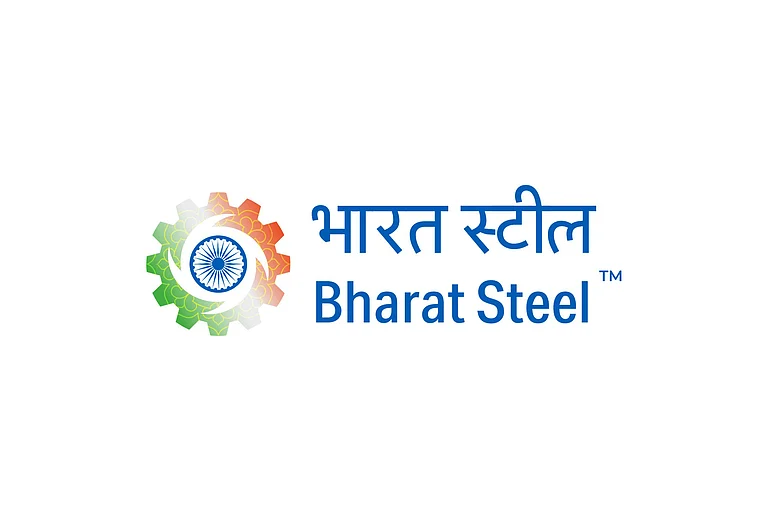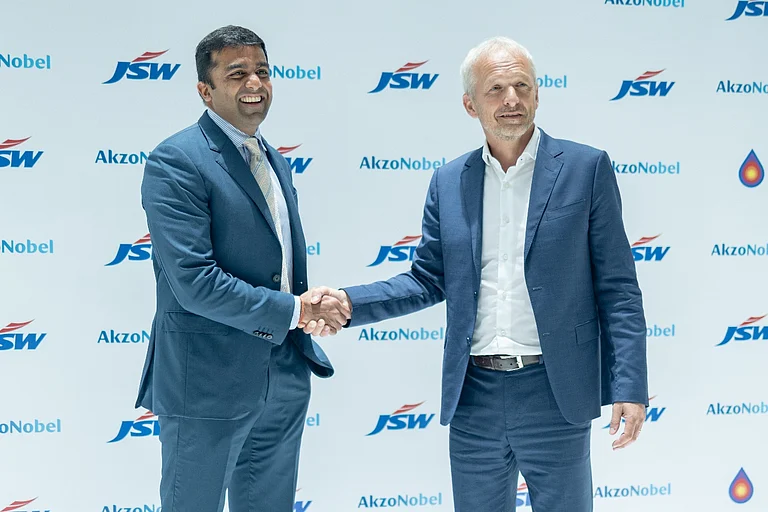India’s real estate sector is shifting from design-first to durability-driven development, with stainless steel emerging as a game-changer. Leading this transformation is Jindal Stainless, which has partnered with Whiteland Corporation to introduce Infinity stainless steel rebars at Westin Residences, Gurugram—a first for India’s branded residences. Unlike conventional materials, stainless steel offers unmatched strength, corrosion resistance, and sustainability, ensuring homes that last generations. At the helm, CEO Tarun Kumar Khulbe is steering the company to redefine construction standards and align with India’s green, future-ready housing vision. In this interview, he shares insights on the partnership, sustainability, and how stainless steel is set to reshape the future of Indian real estate.
Q.1 Tell us about the partnership with Whiteland Corporation for Westin Residences Gurugram. What does it mean for Jindal Stainless and the housing sector?
TK: At Jindal Stainless, we are not just participants in India’s growth story—we are driving it by setting new benchmarks in material standards across all critical sectors. Real estate is a natural extension of this vision, where the choice of material determines the safety, durability, and future-readiness of homes.
In this respect, our partnership with Whiteland Corporation for Westin Residences Gurugram translates this commitment into action within India’s branded residences sector. While stainless steel has been in use in the housing sector, by introducing Jindal Infinity stainless steel rebars into India’s branded residences, we are reinforcing the sector’s structural backbone with unmatched strength and sustainability.
Our larger ambition is to lead the transformation of Indian real estate from design-driven to durability-driven development, ensuring that homeowners can place their trust not just in what they see, but in the very foundations that support their lives.
Q.2 What makes stainless steel rebars superior to conventional carbon steel rebars?
TK: Stainless steel is the future of resilient infrastructure. Unlike conventional carbon steel rebars, stainless steel is 100% recyclable and produced through a scrap-intensive process that inherently lowers emissions. But sustainability is not only about reducing carbon; it is about building for generations. Stainless steel offers unmatched durability, resource efficiency, and long-term value.
By virtue of these features, stainless steel rebars lasts more than twice as long as conventional rebars that typically have a service life of around 50 years. Our 410L grade stainless steel rebars delivered for this project offer high load-bearing capacity, tensile strength, seismic resilience, and superior corrosion resistance. In high-exposure environments, whether coastal, seismic-prone, or urban, they ensure structural integrity and lower lifecycle costs.
Q.3 How does this innovation align with the rising focus on sustainability in real estate?
TK: Real estate is one of the largest contributors to the country’s GDP, but it also leaves one of the biggest environmental footprints. The shift underway is undeniable—developers are moving from short-lived design trends to long-term engineering solutions, while homebuyers are prioritizing quality-built, eco-friendly spaces that endure.
Stainless steel rebars provide a compelling answer to this shift. They reduce lifecycle emissions and ensure durability that prevents premature reconstruction and waste. For discerning buyers, this translates into safer, greener, and future-ready homes.
The Government of India has also reinforced this momentum with supportive policies, from green rating systems to tax incentives and regulatory frameworks that encourage sustainable practices. For a sector under increasing scrutiny for its environmental impact, sustainable construction is steadily emerging as the way forward in real estate.
Q.4. From a buyer’s perspective, how does this impact the value of their investment?
TK: When a buyer builds or buys a house, they are not just purchasing square footage; they are investing in trust, safety, and longevity. They want their investments to be future proof.
By embedding stainless steel rebars, we’re ensuring homes with double the service life, lower maintenance needs, and uncompromised safety. For buyers, this means peace of mind, long-term savings, and higher asset value. For them, the greatest return is confidence—confidence that their home will stand strong, year after year.
Q.5. Do you see this as a one-off initiative, or the beginning of a broader trend in Indian housing?
TK: For long, material standards have defined the trajectory of every critical sector, and housing is no exception. What we are seeing now is a long-overdue awareness and recognition that durability and sustainability must sit at the very core of real estate.
Just as energy efficiency ratings became a norm in appliances or earthquake-resistant design codes became standard in construction, we see stainless steel becoming the ‘new normal’—from rebars in housing structures, in kitchen, sinks and fittings, its integration will steadily move to the common man’s house.
Our collaboration with Whiteland is a signal of what’s to come. We want to truly redefine how India builds, proving that longevity and sustainability are not aspirations, but essentials.
Q.6. Can you share how Jindal Stainless is positioned to support this transition at scale?
TK: Jindal Stainless is India’s largest stainless-steel manufacturer, with two of its biggest plants in Jajpur, Odisha, and Hisar, Haryana. We are also going strong on our way to scale up the melt capacity to 4.2 million tonnes, to further power India’s most critical sectors, from railways and metros to defence and infrastructure.
This scale, combined with our integrated operations and decades of expertise, positions us strongly to support the real estate sector’s transition. We are fully equipped to meet the growing demand for stainless steel rebars and to eventually expand into a wider range of sustainable solutions for housing and construction.
Q.7. Finally, how do you see this shaping the future of Indian real estate in the next decade?
TK: Indian real estate is evolving rapidly. Buyers no longer evaluate homes just on design, interiors, or amenities, they’re looking deeper at the structural promise. With urbanization accelerating and lifecycle economics becoming crucial, the shift towards durable, low-maintenance, and sustainable construction is inevitable. Stainless steel rebars will play a defining role in this transformation, ensuring that tomorrow’s homes are built not just to last, but to inspire generations.
About Mr Tarun Kumar Khulbe:
An industry veteran with 35 years of experience, Mr Tarun Kumar Khulbe has played an instrumental role in steering Jindal Stainless towards operational excellence and strategic growth. He was appointed Chief Executive Officer (CEO) in January 2024 after serving as Whole Time Director since 2018. In his current role as CEO, CFO, and Director on the Board, Mr Khulbe provides overall leadership and is responsible for key strategic decisions across the organisation.
Mr Khulbe holds a degree in engineering from MITS, Gwalior, and an MBA from Jamnalal Bajaj Institute of Management Studies, Mumbai.






















